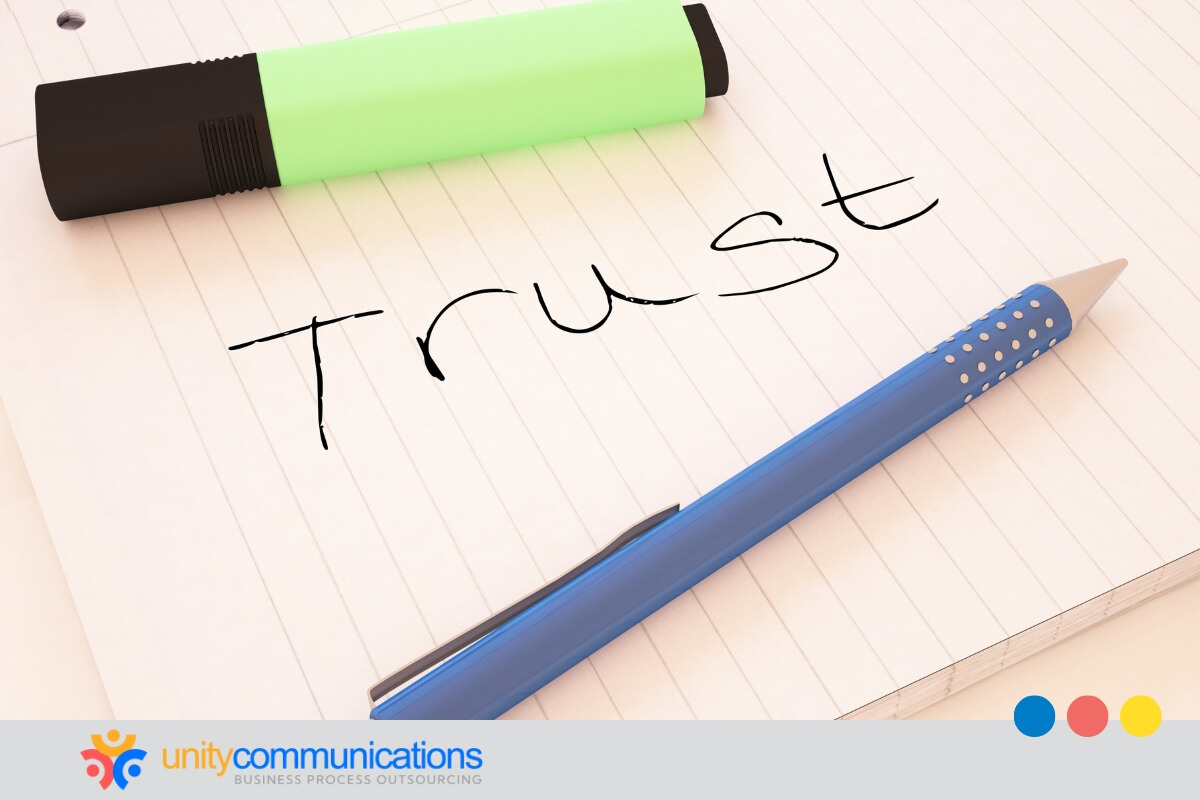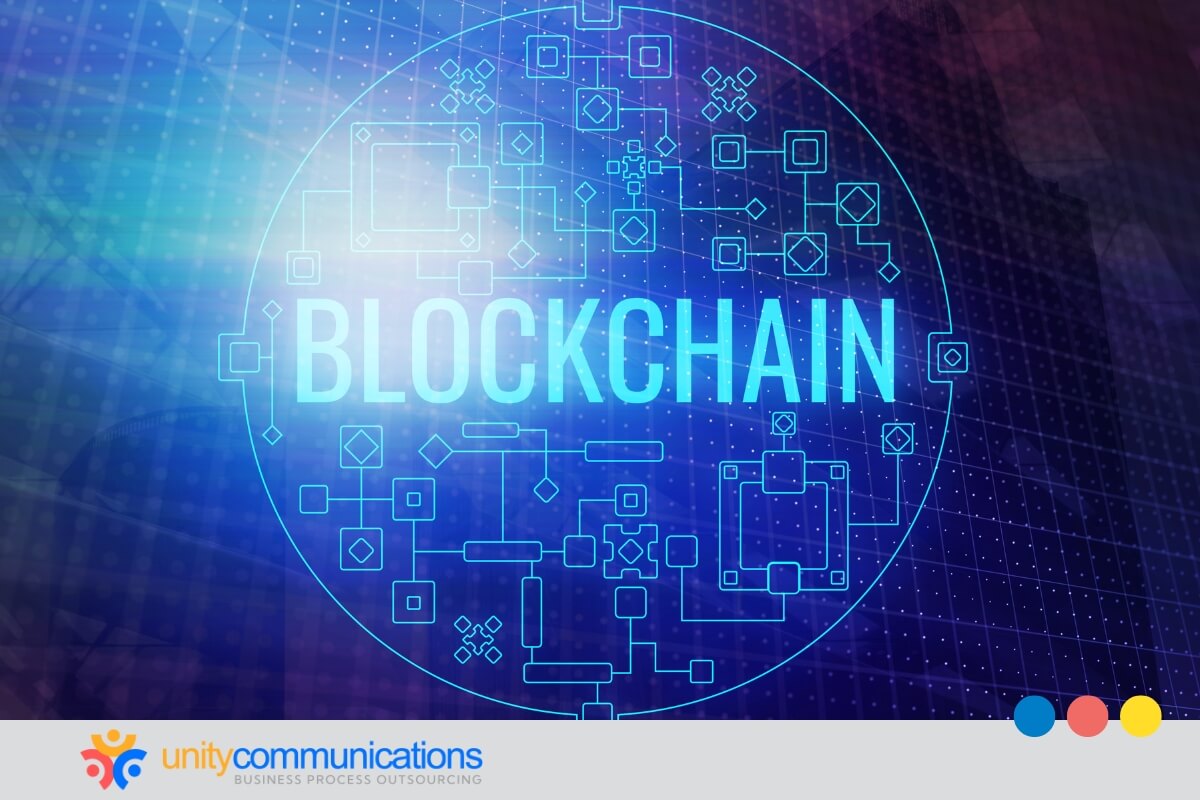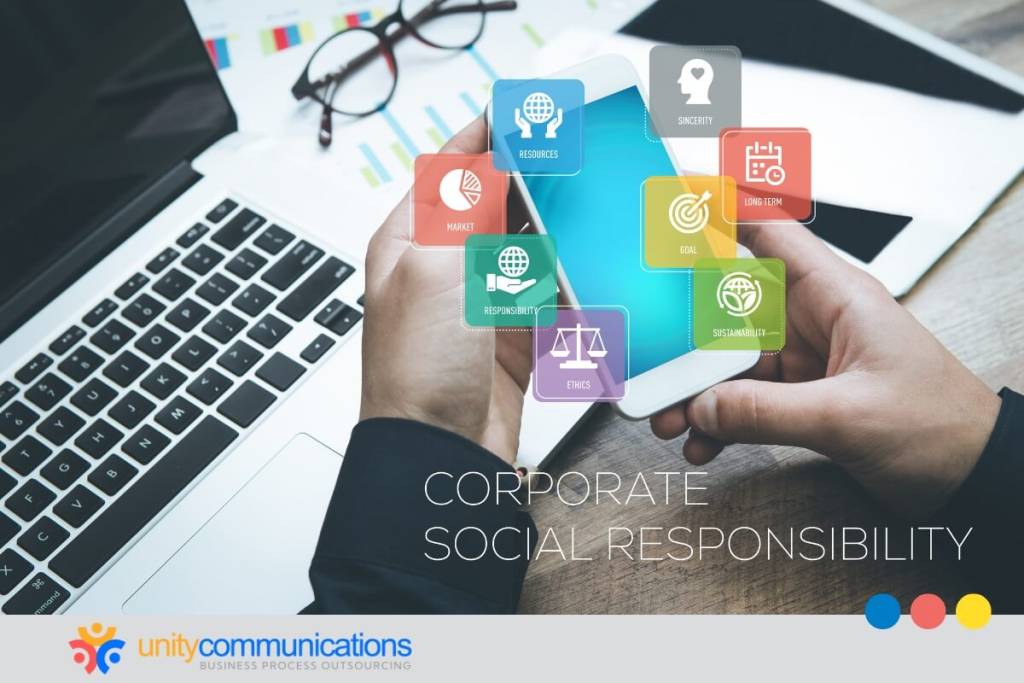IN THIS ARTICLE
Table of Contents
As outsourcing becomes integral to global business strategies, companies face mounting pressure to uphold ethical standards and sustainability in their operations. Companies engaged in business process outsourcing (BPO) must now meet rising expectations from customers, investors, and regulators for corporate social responsibility (CSR).
Fortunately, technological innovations transform how businesses manage their BPO relationships, promoting transparency, fair labor practices, and environmental stewardship.
Read below to discover how technology’s role in CSR outsourcing makes you an ethical, sustainable business with eight top innovations.
What is BPO and why it matters in responsible outsourcing

Before focusing on technology’s role in CSR outsourcing, it’s essential to understand what BPO is. Business process outsourcing involves contracting specific tasks or services to external providers, usually located in different regions or countries, to improve efficiency and focus on core business functions.
Some of the most common functions of BPO include customer service, human resources, finance and accounting, information technology (IT) support, and other back-office tasks. Partnering with third-party firms can streamline operations, reduce costs, offer access to specialized expertise, boost scalability, and help you focus on your core activities.
However, as your business grows and outsourcing relationships expand across borders, these partnerships become more complex. They can introduce new layers of risk, accountability, and ethical responsibility.
How do you promote compliance, transparency, and ethical practices throughout the supply chain, satisfy stakeholder demands, and build customer trust? Consider integrating the following tech innovations into your BPO partnership.
8 cutting-edge technologies advancing ethical outsourcing

Ethical and sustainable outsourcing is no longer a “nice-to-have”—it’s a business imperative. Across industries, stakeholders demand transparency, accountability, and social responsibility from the partners you work with and the technologies you use. The pressure to meet environmental, social, and governance (ESG) goals while scaling efficiently has made innovation helpful and essential.
Fortunately, technology is rising to meet the challenge. From artificial intelligence auditing working conditions in remote facilities to blockchain verifying fair trade compliance in real time, tech innovations are transforming how businesses outsource responsibly. For instance, Unilever uses AI-driven analytics to monitor the labor practices of its global suppliers. At the same time, IBM leverages blockchain to ensure ethical cobalt sourcing in its electronics supply chain.
Below, we explore eight transformative technologies driving this evolution. Each tool empowers organizations to make outsourcing not only more efficient but also more just, inclusive, and sustainable.
1. AI and data analytics for CSR management
AI and data analytics support ethical and sustainable outsourcing by improving your supply chain management and partner operations oversight. They can track labor practices, monitor environmental impact, and foster real-time compliance with CSR standards.
As part of the shift to “Outsourcing 2.0,” artificial intelligence is reshaping how companies manage third-party operations. According to DXC Technology, AI-powered tools like machine learning (ML), natural language processing (NLP), computer vision, and pattern recognition are being applied to outsourcing environments to process massive data sets, understand human language, interpret visual inputs, and flag anomalies such as fraud or compliance breaches.
These capabilities automate tasks, identify issues early, and enhance control across outsourcing partnerships. AI simplifies audits and delivers data-driven insights that boost transparency and accountability across complex global supply chains.
Technology’s role in outsourcing here is to create proactive strategies that reinforce CSR compliance, transparency, and stakeholder trust.
2. Blockchain for transparency
Grand View Research shares that the global blockchain technology market could achieve an impressive compound annual growth rate (CAGR) of 90.1% from 2025 to 2030. This data emphasizes the increasing demand for secure, transparent transactions across various industries.
Blockchain has many uses in outsourcing, including:
- Enhance transparency by providing a secure, tamper-proof record of every supply chain transaction and process.
- Help verify whether outsourcing partners comply with labor laws, environmental regulations, and ethical sourcing standards.
- Guide you to track and share real-time data with stakeholders, promoting trust and accountability.
- Reduce fraud by validating the authenticity of certifications, audits, and compliance documents.
- Improve contract enforcement by automatically executing agreed-upon terms between outsourcing partners.
Blockchain solutions offer greater visibility and more secure data to make informed, responsible outsourcing decisions.
3. IoT for environmental impact monitoring
IoT is another technical innovation that can help promote ethical and sustainable outsourcing. Fortune Business Insights reports that its global market reached $662.21 billion in 2023 and could hit around $3.3 trillion by 2030, reflecting its expanding role in transforming industries.
In outsourcing, you can integrate IoT for environmental monitoring. The technology can provide real-time data on your external partner’s ecological impact, including energy consumption, emissions, and waste management across offshore operations. You can quickly identify areas that need improvement and maintain compliance with environmental standards.
By leveraging IoT, you can hold BPO providers accountable and continuously align operations with environmental and sustainability regulations.
4. Digital tools for stakeholder engagement
Digital platforms foster ethical and sustainable outsourcing by engaging stakeholders through open communication and effective collaboration. With these tools, you can:
- Share important updates about your CSR initiatives, sustainability goals, and progress across outsourcing partnerships.
- Gather feedback to understand stakeholder expectations better.
- Address stakeholder concerns and questions around labor conditions, environmental impact, or supplier practices.
- Facilitate real-time collaboration with BPO partners to develop responsible solutions and maintain compliance.
- Track engagement metrics to determine how well you connect with stakeholders around CSR.
- Utilize technology to monitor status and facilitate smoother transitions.
- Conduct post-transition reviews to identify improvement areas and fine-tune processes.
Transparent and consistent dialogues build trust, align stakeholder expectations with CSR objectives and outsourcing practices, and demonstrate your accountability. They strengthen collaboration and mutual commitment to support long-term, ethical, and sustainable outsourcing efforts.
5. Remote volunteering to support CSR and culture
Remote volunteering is on the rise. In 2023 alone, over 13.4 million Americans (18% of formal volunteers) participated in virtual or hybrid social and environmental initiatives, allowing employees to contribute to CSR efforts from anywhere.
In outsourcing, these programs advance ethical and sustainable practices by creating meaningful connections between your workforce and the communities where your BPO partners operate.
Remote volunteering shows your commitment to CSR while strengthening employee engagement, fostering local impact, and building a more values-driven outsourcing culture.
6. Green technology to reduce outsourcing’s carbon footprint
Currently, the tech industry contributes to about 3.7% of global greenhouse gas emissions, mainly due to the energy consumption of data centers, network infrastructure, and the production and use of digital devices.
Running servers, powering massive cloud systems, and maintaining 24/7 connectivity require significant electricity, much of which is still sourced from fossil fuels. Additionally, the life cycle of hardware increases the industry’s carbon footprint.
However, emerging innovative technologies are reversing the trend by cutting waste and reinforcing sustainable practices. AI, IoT, and cloud computing optimize energy use:
- Analyze consumption patterns.
- Automate system efficiencies.
- Track real-time emissions and energy usage across outsourced facilities.
- Integrate dashboards to centralize data collection and simplify monitoring.
Technology in outsourcing includes embedding sustainability into the fabric of service delivery, aligning operations with global CSR targets, and improving long-term cost efficiency.
7. Digital initiatives that drive community impact
Using digital tools for social impact makes outsourcing more ethical and sustainable by helping you support and grow programs that benefit your partners’ local communities.
Technology’s role in outsourcing ranges from designing to implementing projects that create a meaningful, positive impact, such as the following:
- Provide online learning resources, digital classrooms, and remote training opportunities.
- Offer telemedicine services, health awareness campaigns, and access to digital health records.
- Deliver virtual skills development, certification programs, and career coaching.
- Support local entrepreneurship, digital financial literacy, and the use of small business tools.
Investing in tech-driven social initiatives creates long-term value for your business and the communities you engage with.
8. Inclusive tech to expand access and equity
Digital platforms strengthen ethical and sustainable outsourcing practices by enhancing inclusion and accessibility. Users and stakeholders, regardless of location and abilities, can participate in and benefit from BPO partnerships.
Presently, only about 3% of the internet is accessible to people with disabilities, even though over one billion people (15% of the global population) have some form of physical impairment or learning problem.
Accessible technologies and inclusive practices can expand job opportunities, support diverse talent, and reduce social inequalities within your outsourcing operations. For example, a BPO company with screen reader–accessible customer relationship management systems and keyboard-navigable training portals can hire visually impaired agents for customer service roles.
Technology’s role in outsourcing is vital in empowering diverse talent, driving equity, and strengthening your broader CSR strategies.
The bottom line

Technology is reshaping how companies meet their CSR commitments in global outsourcing. Innovations like AI, blockchain, IoT, and digital platforms are improving transparency, strengthening accountability, and increasing community impact. By integrating these tools into your BPO strategies, you can create a more ethical, sustainable outsourcing model that benefits both your business and its stakeholders.
Ready to bring ethical innovation into your outsourcing strategy? Let’s connect and explore how these technologies can align with your CSR goals.





